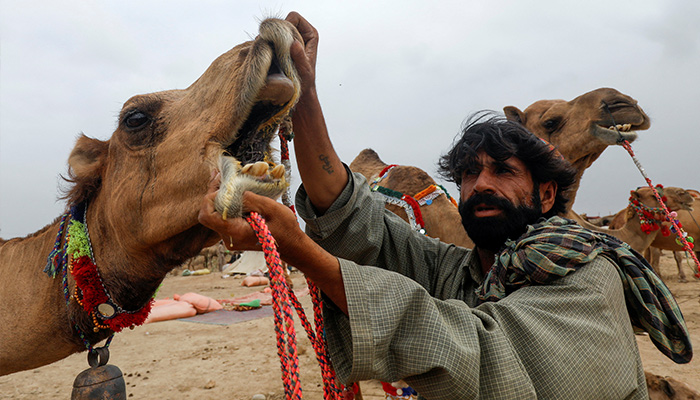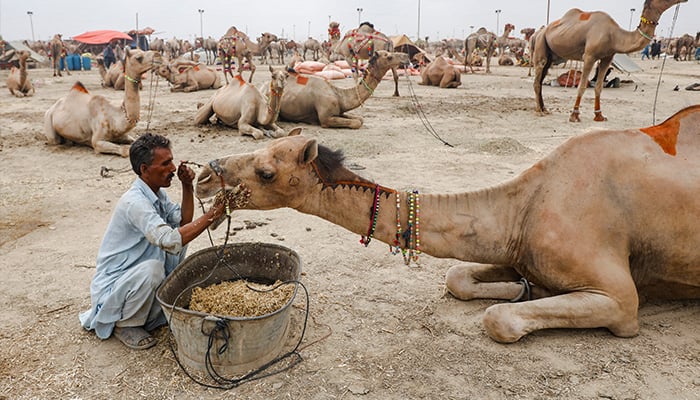
ISLAMABAD: Teenager Amanullah Khan teeters on tiptoe and daubs towering camels with festive henna patterns to lure Eid ul Adha shoppers at a market near the federal capital.
Hundreds of farmers camped out for two weeks at cattle markets between Islamabad and its sister city Rawalpindi, hoping to sell animals ahead of Pakistan’s annual holy festival that begins Thursday.
But with rampant inflation — which hit a record 38 percent in May — the markets are attracting fewer people.
Khan’s cousin Zakaria put 18 camels on the market last year after good profits, but has only sold one so far.
“People’s purchasing power is over. Customers don’t come to the market and those who come prefer to come back empty-handed because of the high prices of the animals,” Zakaria, 21, told me. AFP.
During the festival, Muslims around the world will slaughter an animal – a goat, sheep, bull or camel – keep a third for themselves before giving a third to friends and family, and a third to charity.

The ritual commemorates the willingness of the Prophet Ibrahim (as) to sacrifice his son to show obedience to Allah.
The age-old festival is guided by tradition, but this year many middle-class Pakistanis will not be able to make a sacrifice.
“Our income is the same, but the prices are sky high. Where do we get so much money from?” asked buyer Ali Akbar, a 46-year-old builder.
Another customer, Zerak Ali, had come to inquire about the price of a camel, which can be as much as one million rupees ($3,500).
“It’s worth 700,000 to you,” Zakaria bickers. But 56-year-old shopkeeper Ali leaves and leads his two grandsons to the enclosure with cheaper bulls.
Camel sacrifice is not common in Pakistan, but some wealthier buyers prefer the animal because 11 families can share the meat, according to Islamic rules.
More than 250 camels have been brought to market in Islamabad, along with thousands of bulls, cows, goats and sheep.
Bulls cost up to 500,000 rupees, while the price of goats varies from 50,000 to 150,000.
Zakaria’s profits are swallowed up by market taxes, rising feed and truck rental prices, as well as staff wages.
“I will lose millions of rupees this year,” he predicts gloomily.
Bakht Zaman, a farmer from Mardan district in northwestern Pakistan, brought 10 camels to market and so far has sold only one for 500,000 rupees.
“The value of the Pakistani rupee has fallen,” says buyer Haq Nawaz. “Who buys such expensive animals?”
#buyers #Eid #camels #Pakistanis #count #rupees
Source link